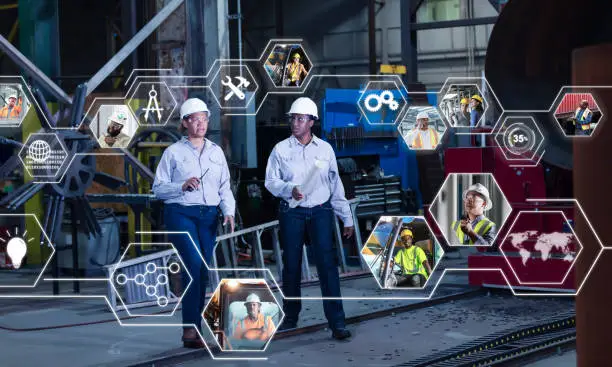Introduction: The Digital Earthquake
Technology is shaking up everything—from how we get around to how we manage our money, health, and even how we learn. Tech startups are at the forefront of this seismic shift. They’re small, nimble, and fearless—the David to many Goliaths in traditional industries. But how are they pulling this off? Let’s dive deep into this revolution.
What Does It Mean to “Disrupt” an Industry?
Definition of Disruption
Disruption doesn’t mean just doing something new. It means doing something so different and efficient that it forces the old way to adapt—or vanish.
Disruption vs. Innovation
While innovation improves the existing system, disruption replaces it. Think of it this way: Innovation is making a better candle. Disruption is inventing the lightbulb.
Why Tech Startups Hold the Upper Hand
Agility and Speed
Unlike large corporations with layers of red tape, startups move fast. They can test an idea, get feedback, and pivot in days—not months. This gives them a huge advantage in dynamic markets.
Cost-Effective Experimentation
Most tech startups leverage open-source tools, cloud services, and low-cost digital marketing. This lean approach lets them try out bold ideas without breaking the bank.
Industries Facing the Heat of Disruption
Transportation and Mobility
Uber and Lyft’s Revolution
Remember taxis? Uber and Lyft didn’t just offer rides—they changed how we think about mobility. They brought convenience, real-time tracking, and digital payments to the table.
Micro-mobility and the Rise of E-Scooters
Startups like Bird and Lime introduced scooters for short-distance travel. Suddenly, city commutes became faster, cheaper, and more eco-friendly.
Finance and Banking
FinTech: From PayPal to Stripe
The finance world once belonged to big banks. Now, FinTech startups like PayPal, Stripe, and Square are making transactions simple, borderless, and mobile-first.
Crypto and Blockchain Startups
Startups like Coinbase and Chainalysis are redefining trust in financial transactions through blockchain. This shift is challenging centralized control like never before.
Healthcare and MedTech
Telemedicine Boom
The pandemic accelerated telehealth, but startups like Teladoc and Amwell were already building virtual healthcare systems. Now, doctor visits can happen on your phone.
AI in Diagnostics and Patient Care
AI startups like PathAI and Butterfly Network are diagnosing diseases faster and more accurately, often catching things that humans might miss.
Education and E-Learning
Online Learning Platforms
Coursera, Udemy, and Khan Academy have turned laptops into classrooms. They’re making education accessible to millions, regardless of geography or income.
Microlearning and Skill-Based Models
Platforms like Skillshare and Duolingo focus on bite-sized learning—perfect for the Netflix generation with short attention spans.
Tech Tools That Make Disruption Possible
Cloud Computing
Startups no longer need massive infrastructure. Tools like AWS, Google Cloud, and Azure let them scale effortlessly, pay-as-you-go style.
Artificial Intelligence & Machine Learning
AI lets startups make data-driven decisions, automate tasks, and create smarter products—like recommending your next binge-watch or detecting fraud.
Big Data and Analytics
Access to large data sets helps startups understand customers better, optimize services, and predict market trends before they happen.
How Startups Are Creating New Business Models
Subscription Economy
From Netflix to Dollar Shave Club, startups love recurring revenue. The subscription model ensures predictability and long-term engagement.
Marketplace Platforms
Airbnb, Fiverr, and Etsy didn’t invent their services—they created platforms where others could offer theirs, earning commission without inventory.
Case Studies of Tech Disruptors
Airbnb vs. Hotels
Hotels hated Airbnb at first. But guess what? Airbnb now offers more listings than the top hotel chains combined, with better personalization and local flavor.
Netflix vs. Blockbuster
Netflix didn’t just kill Blockbuster—it redefined entertainment. From mail-order DVDs to global streaming, it evolved while Blockbuster stood still.
The Dark Side of Disruption
Job Displacement
Automation and digital platforms often eliminate traditional jobs. For example, Uber drivers replaced full-time taxi drivers, raising labor concerns.
Regulation Challenges
Startups often operate in grey areas of the law, pushing boundaries faster than governments can keep up. This creates friction and legal battles.
How Traditional Companies Are Fighting Back
Embracing Innovation Internally
Legacy firms are launching innovation labs and tech teams. Think Walmart’s acquisition of Jet.com or McDonald’s digital ordering transformation.
Acquiring Startups
Rather than compete, giants like Google and Amazon buy out promising startups, gaining talent and tech in one swoop.
What This Means for Consumers
Lower Prices and More Convenience
Disruption almost always benefits consumers. More options, better prices, and convenience rule the day—who doesn’t love that?
Privacy Concerns and Ethical Dilemmas
But beware—more tech means more data, and not all startups handle it ethically. From facial recognition to personal info, privacy is a growing concern.
The Future of Disruption: What’s Next?
AI and Automation Expanding Reach
Expect even more disruption as AI powers everything from self-driving cars to personalized healthcare. Startups are leading the charge.
Sustainability and GreenTech Disruptions
Eco-conscious startups are targeting wasteful industries. From plant-based meats (like Beyond Meat) to solar tech startups, sustainability is the new frontier.
Conclusion
Tech startups are more than just “the new kids on the block.” They’re bold, relentless, and changing the world one industry at a time. Traditional players can either adapt or risk becoming obsolete. For consumers, it’s mostly a win—but with new opportunities come new responsibilities. So, keep your eyes open and your data protected.
FAQs
1. What makes tech startups different from traditional companies?
Startups are agile, tech-driven, and more open to experimentation. They move faster and take bigger risks than most established corporations.
2. Which industries are most at risk of disruption?
Transport, finance, healthcare, education, and media are already feeling the impact. But no industry is truly safe in the long run.
3. How can traditional companies stay relevant?
By embracing innovation, partnering with or acquiring startups, and listening to evolving customer needs.
4. Are disruptions always good for consumers?
Not always. While disruption usually means lower prices and better services, it can also lead to job losses and privacy risks.
5. Will every startup become a disruptor?
Nope. Many fail. But the ones that succeed often change the game forever, like Uber, Airbnb, or Netflix.

